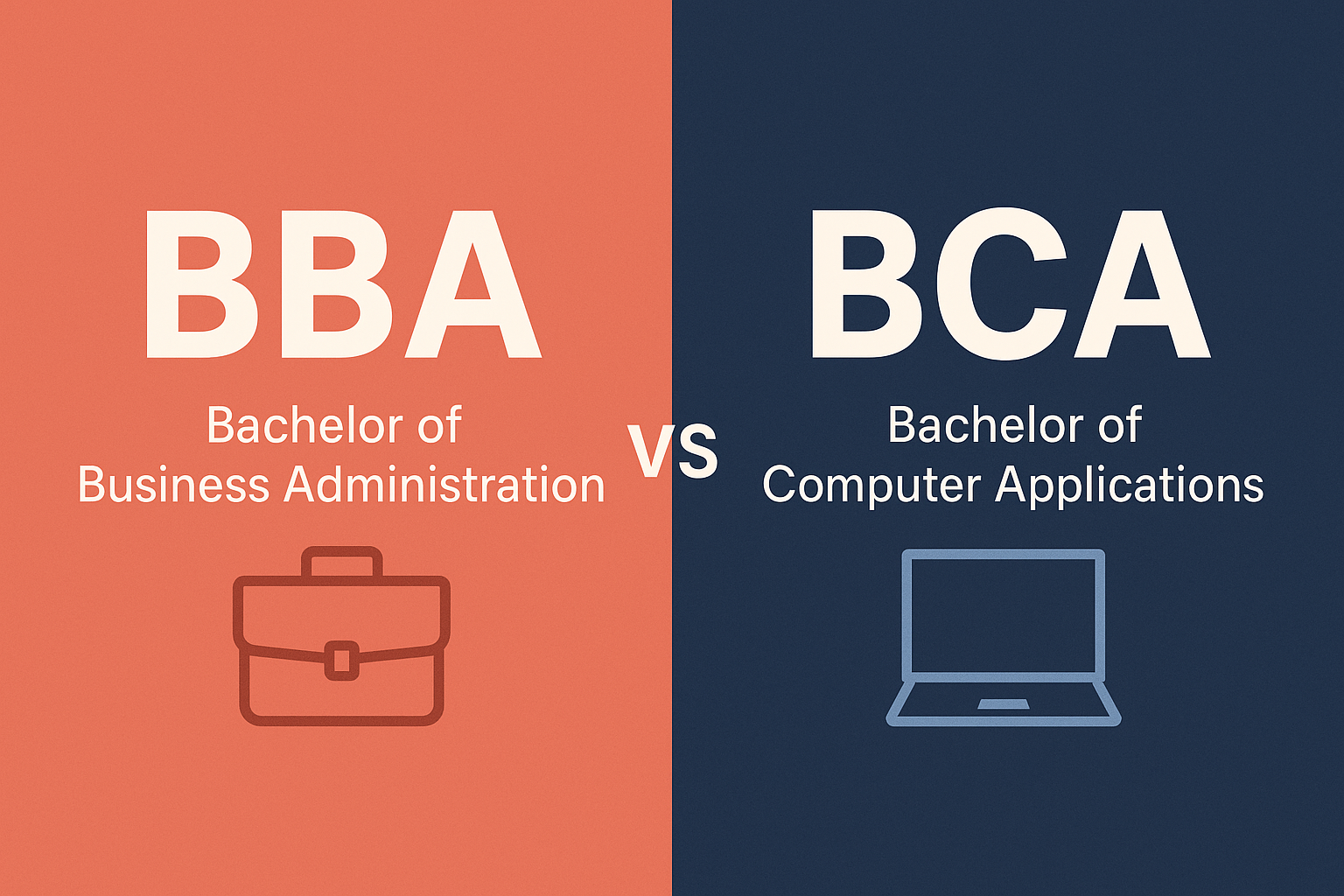
Choosing the right undergraduate program is one of the most important steps in shaping your future. For students interested in business or technology, two popular options often stand out — BBA (Bachelor of Business Administration) and BCA (Bachelor of Computer Applications). While both offer promising career paths, they cater to very different interests and skill sets.
In this blog, ApplyBuds breaks down the differences between BBA and BCA to help you make an informed decision about your next step after high school.
What Is BBA?
The Bachelor of Business Administration (BBA) is a three-year undergraduate program that focuses on core business and management skills. It prepares students for leadership roles across industries by developing their understanding of marketing, finance, human resources, and operations.
BBA Overview:
- Key Subjects: Marketing, Finance, HRM, Business Strategy, Business Law
- Top Career Paths: Business Analyst, Marketing Manager, Financial Consultant, HR Executive, Entrepreneur
- Further Study Options: MBA, PGDM, Executive MBA
Why Choose BBA?
- Versatile Career Options: Work across banking, retail, consulting, and more.
- Leadership Development: Builds strategic thinking, decision-making, and people management skills.
- Great for MBA Aspirants: Strong foundation for postgraduate management programs.
What Is BCA?
The Bachelor of Computer Applications (BCA) is a three-year undergraduate program designed for students passionate about computers and technology. The course builds a solid foundation in programming, data structures, and IT systems.
BCA Overview:
- Key Subjects: Programming (C++, Java, Python), Database Management, Web Development, Networking
- Top Career Paths: Software Developer, Data Analyst, Cybersecurity Specialist, IT Consultant
- Further Study Options: MCA, M.Sc. Computer Science, MBA (IT)
Why Choose BCA?
- Tech-Driven Careers: High demand for IT professionals in every sector.
- Hands-On Technical Training: Learn coding, software development, and emerging tech.
- Gateway to Advanced Roles: BCA graduates can upskill into data science, cloud computing, and AI.
BBA vs BCA: A Side-by-Side Comparison

| Criteria | BBA | BCA |
|---|---|---|
| Focus Area | Business, Management, Leadership | Computers, Programming, IT |
| Key Skills | Communication, Strategy, Management | Coding, Software Development, Problem-Solving |
| Career Options | Business Management, Marketing, HR, Finance | Software Development, IT Services, Data Analysis |
| Higher Studies | MBA, PGDM | MCA, M.Sc. CS, MBA (IT) |
| Industries | Banking, Retail, Consulting | Tech, IT, E-commerce |
| Job Flexibility | Multi-industry Roles | Primarily IT/Tech Sectors |
Read Also: MBA After BCA: Top Non-Technical Career Options Beyond Tech
Is BBA Right for You?
BBA is an ideal fit if:
- You enjoy working with people and leading teams.
- You’re curious about how businesses operate and grow.
- You’re planning to pursue an MBA or management career in the future.
Is BCA Right for You?
BCA is a great choice if:
- You love computers, coding, and solving technical challenges.
- You want to enter the fast-growing tech industry.
- You’re interested in roles like software developer, data analyst, or IT consultant.
Salary Outlook: BBA vs. BCA
Both degrees offer solid starting salaries, depending on role and experience:
- BBA Graduates: ₹3–6 LPA in entry-level business roles, with potential to grow in corporate and startup environments.
- BCA Graduates: ₹3.5–8 LPA in IT and software roles, with rapid growth in specialized fields like AI and data science.
Final Thoughts: Which Course Should You Choose?
Your ideal course depends on your strengths, interests, and career aspirations. Choose BBA if you see yourself as a future manager or entrepreneur. Opt for BCA if you’re passionate about technology and want a career in the IT world.
No matter which path you choose, ApplyBuds is here to help you explore top colleges, compare programs, and take the next step with confidence.
